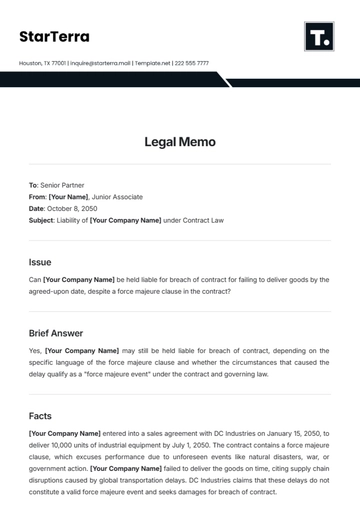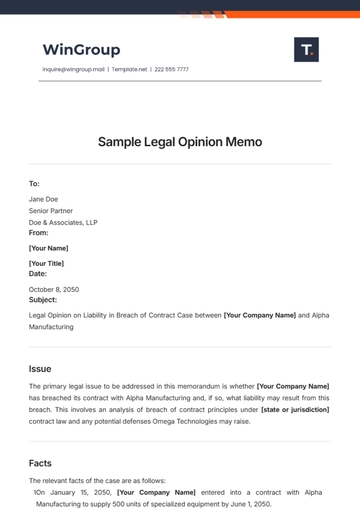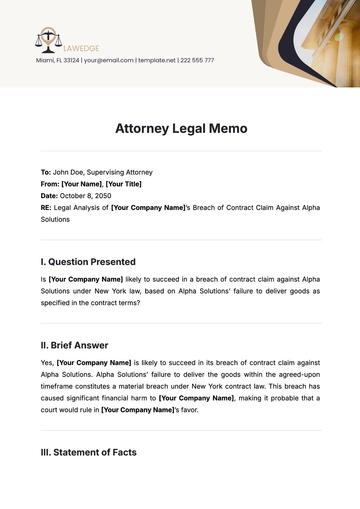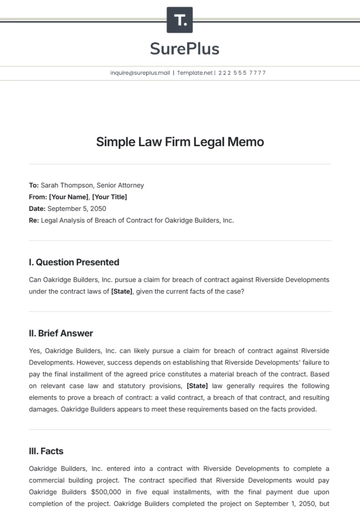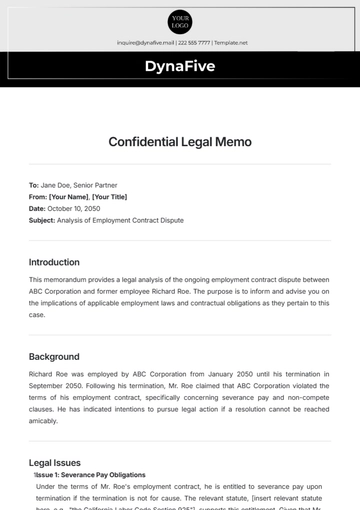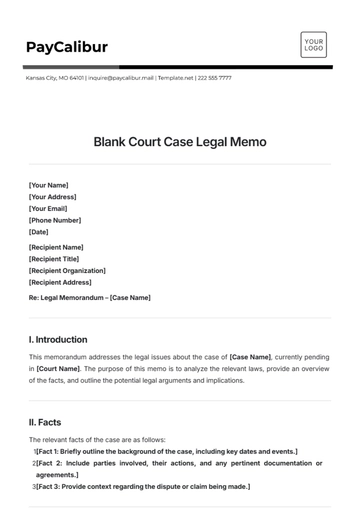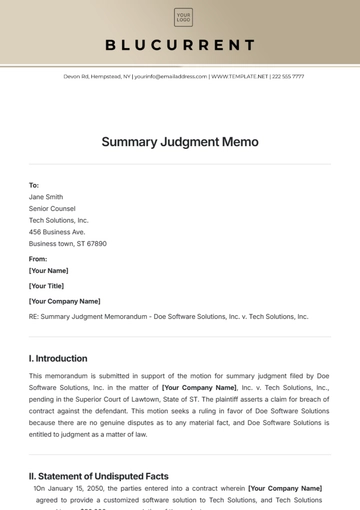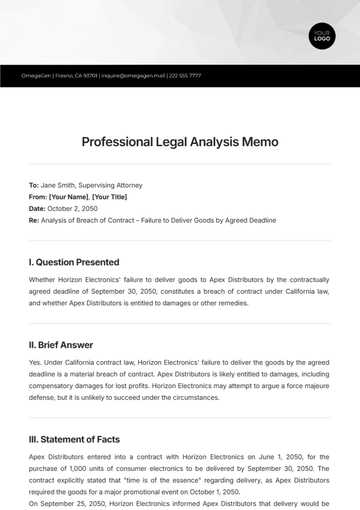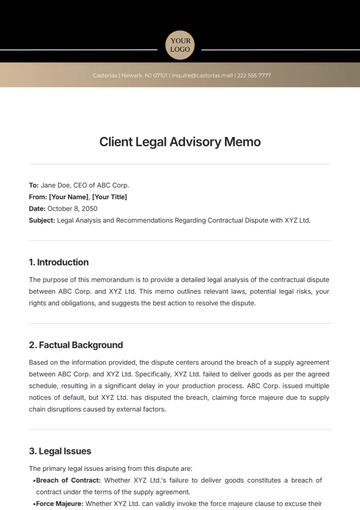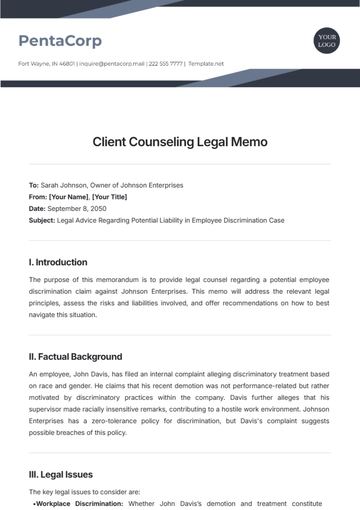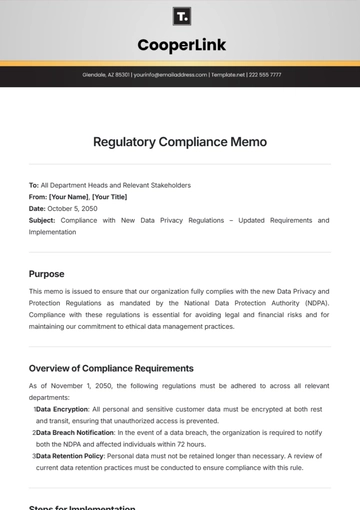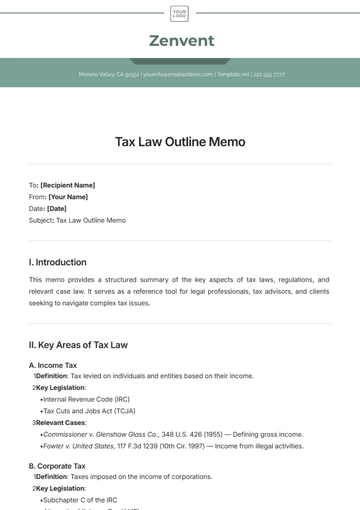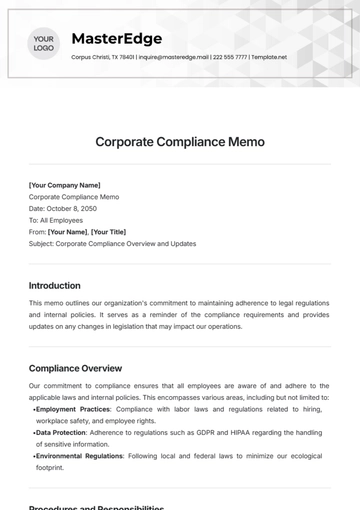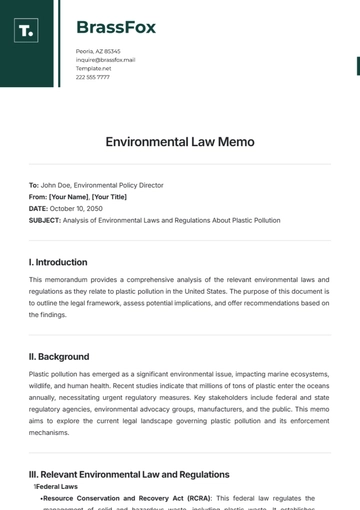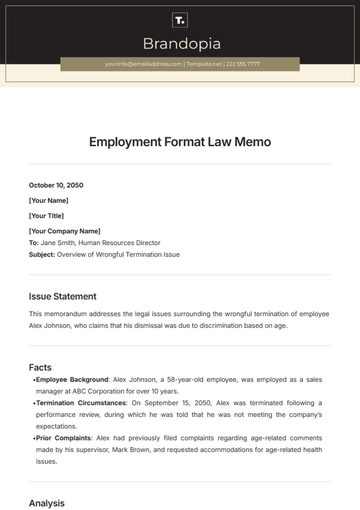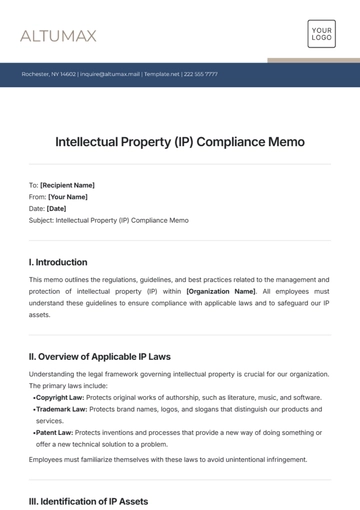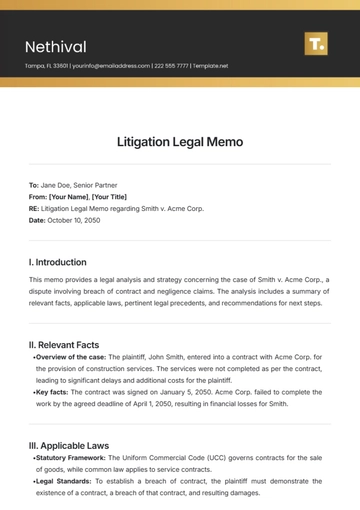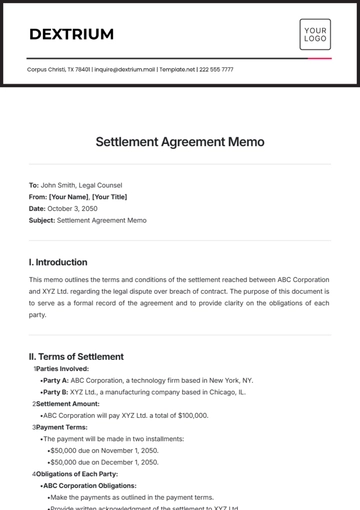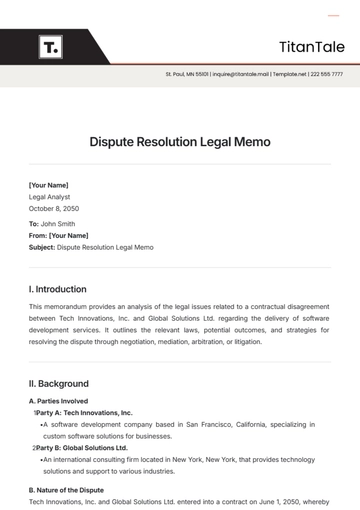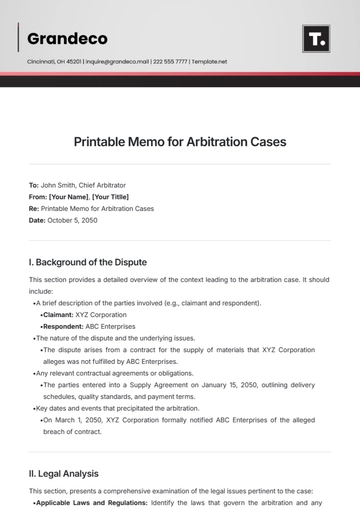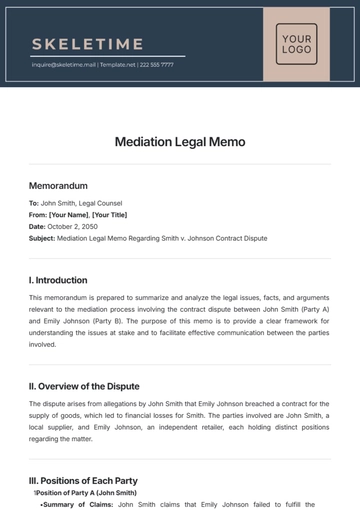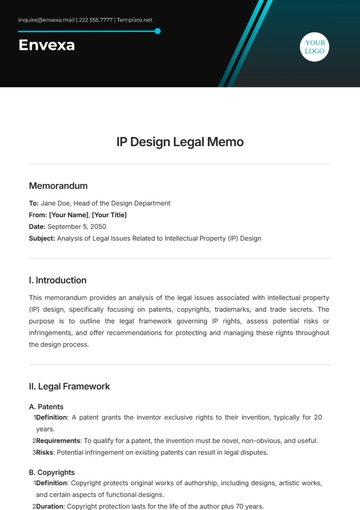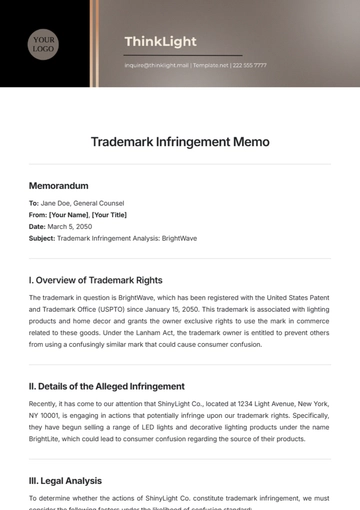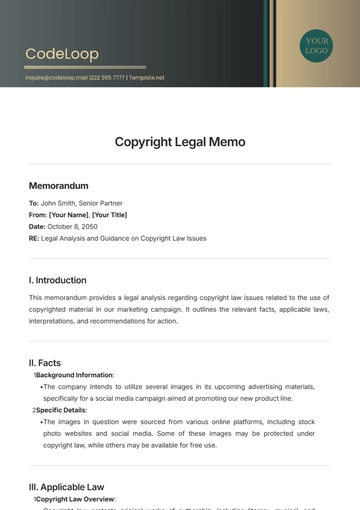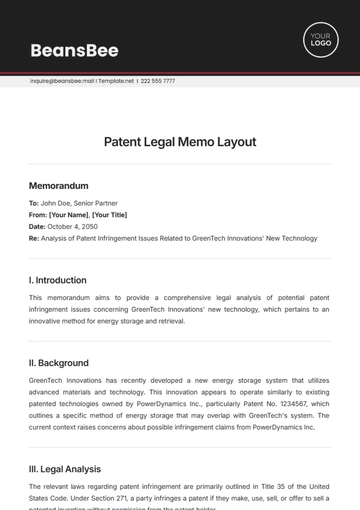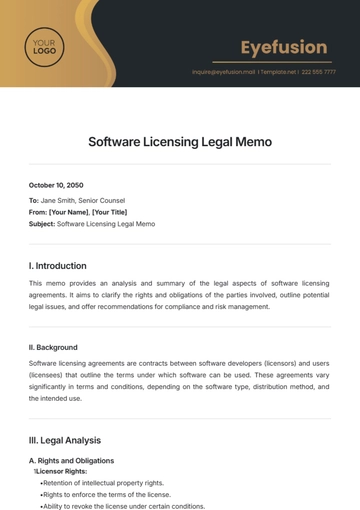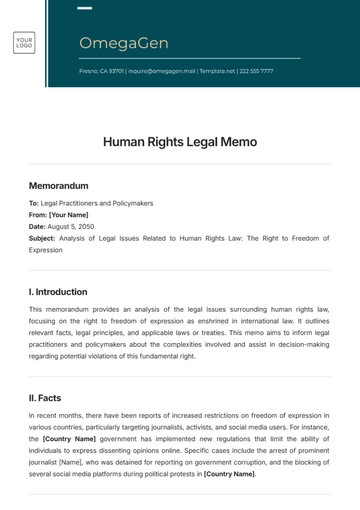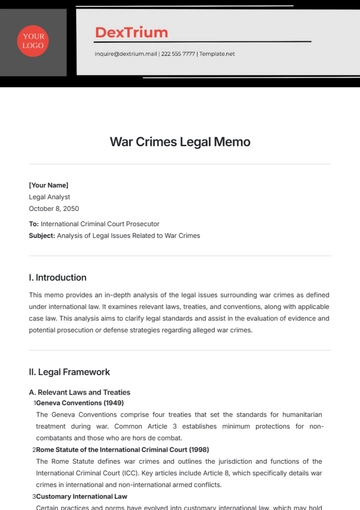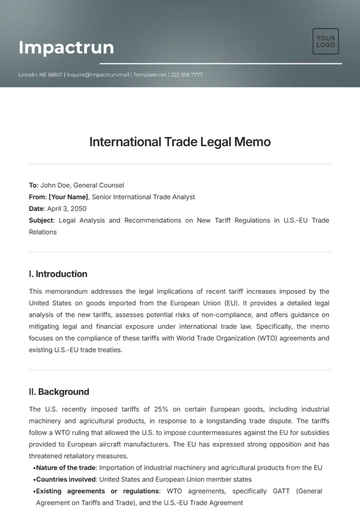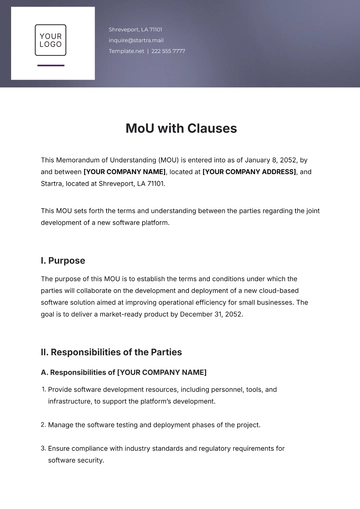Free War Crimes Legal Memo
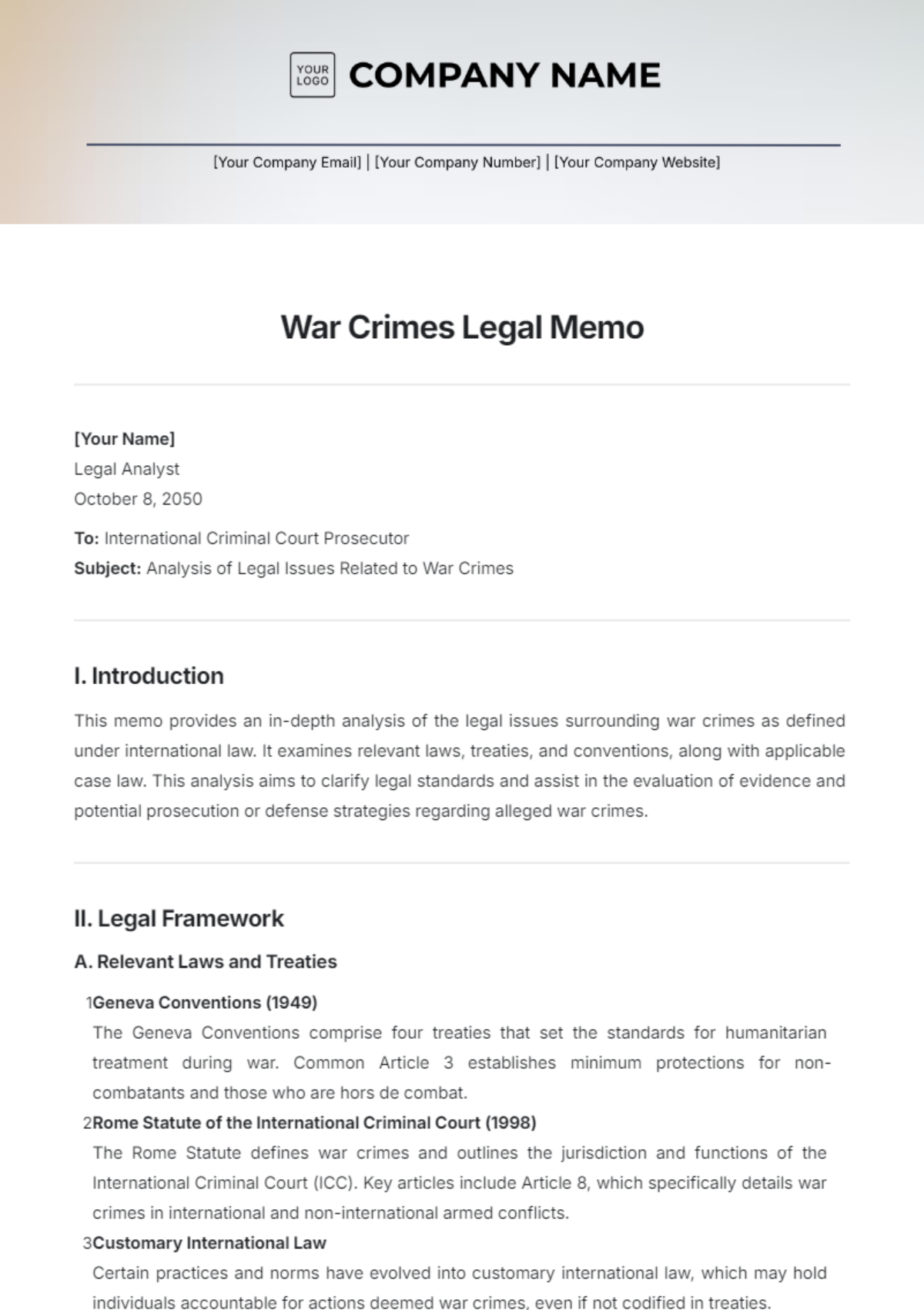
[Your Name]
Legal Analyst
October 8, 2050
To: International Criminal Court Prosecutor
Subject: Analysis of Legal Issues Related to War Crimes
I. Introduction
This memo provides an in-depth analysis of the legal issues surrounding war crimes as defined under international law. It examines relevant laws, treaties, and conventions, along with applicable case law. This analysis aims to clarify legal standards and assist in the evaluation of evidence and potential prosecution or defense strategies regarding alleged war crimes.
II. Legal Framework
A. Relevant Laws and Treaties
Geneva Conventions (1949)
The Geneva Conventions comprise four treaties that set the standards for humanitarian treatment during war. Common Article 3 establishes minimum protections for non-combatants and those who are hors de combat.Rome Statute of the International Criminal Court (1998)
The Rome Statute defines war crimes and outlines the jurisdiction and functions of the International Criminal Court (ICC). Key articles include Article 8, which specifically details war crimes in international and non-international armed conflicts.Customary International Law
Certain practices and norms have evolved into customary international law, which may hold individuals accountable for actions deemed war crimes, even if not codified in treaties.
B. Case Law
International Criminal Tribunal for the Former Yugoslavia (ICTY)
The ICTY has established significant precedents, such as the Prosecutor v. Tadić case, which clarified the criteria for what constitutes a war crime and the applicable defenses.International Criminal Tribunal for Rwanda (ICTR)
The ICTR’s jurisprudence has contributed to the definition of war crimes, particularly genocide and crimes against humanity.
III. Analysis of Specific Incidents
A. Identification of Potential War Crimes
Targeting Civilians
Actions that deliberately target civilians or civilian infrastructure may constitute war crimes under Article 8(2)(b)(i) of the Rome Statute.Use of Prohibited Weapons
The use of chemical, biological, or certain conventional weapons against civilians or in non-combat scenarios raises serious legal concerns regarding compliance with international law.Inhumane Treatment of Detainees
Actions such as torture or inhumane treatment of captured combatants or civilians may also qualify as war crimes under both the Geneva Conventions and the Rome Statute.
B. Evaluation of Evidence
In evaluating potential war crimes, it is crucial to gather and analyze evidence, including eyewitness testimonies, photographic or video evidence, and expert reports. The credibility and reliability of this evidence will be essential for any potential prosecution or defense strategy.
IV. Conclusion
The analysis of war crimes under international law is complex and requires a thorough understanding of applicable treaties, customary law, and relevant case law. The specific incidents outlined in this memo demonstrate potential violations that warrant further investigation. Legal standards must be applied rigorously to ensure accountability for those responsible for war crimes.
V. Recommendations
Further Investigation
Conduct comprehensive investigations into the identified incidents to gather sufficient evidence for potential prosecutions.Legal Strategy Development
Develop clear legal strategies for prosecution or defense based on the evidence gathered and the applicable legal frameworks.Interdisciplinary Collaboration
Engage with experts in international law, human rights, and forensic analysis to strengthen the case for either prosecution or defense.
- 100% Customizable, free editor
- Access 1 Million+ Templates, photo’s & graphics
- Download or share as a template
- Click and replace photos, graphics, text, backgrounds
- Resize, crop, AI write & more
- Access advanced editor
